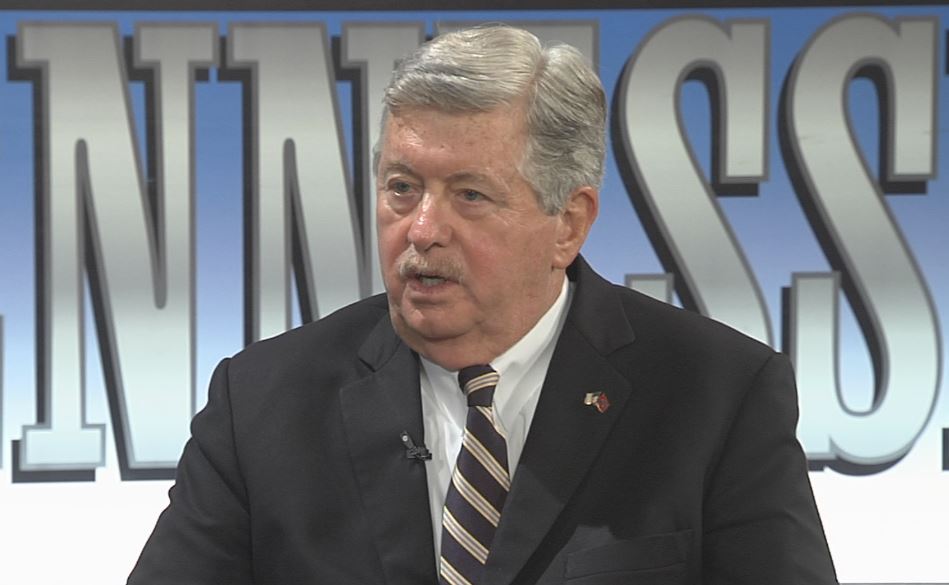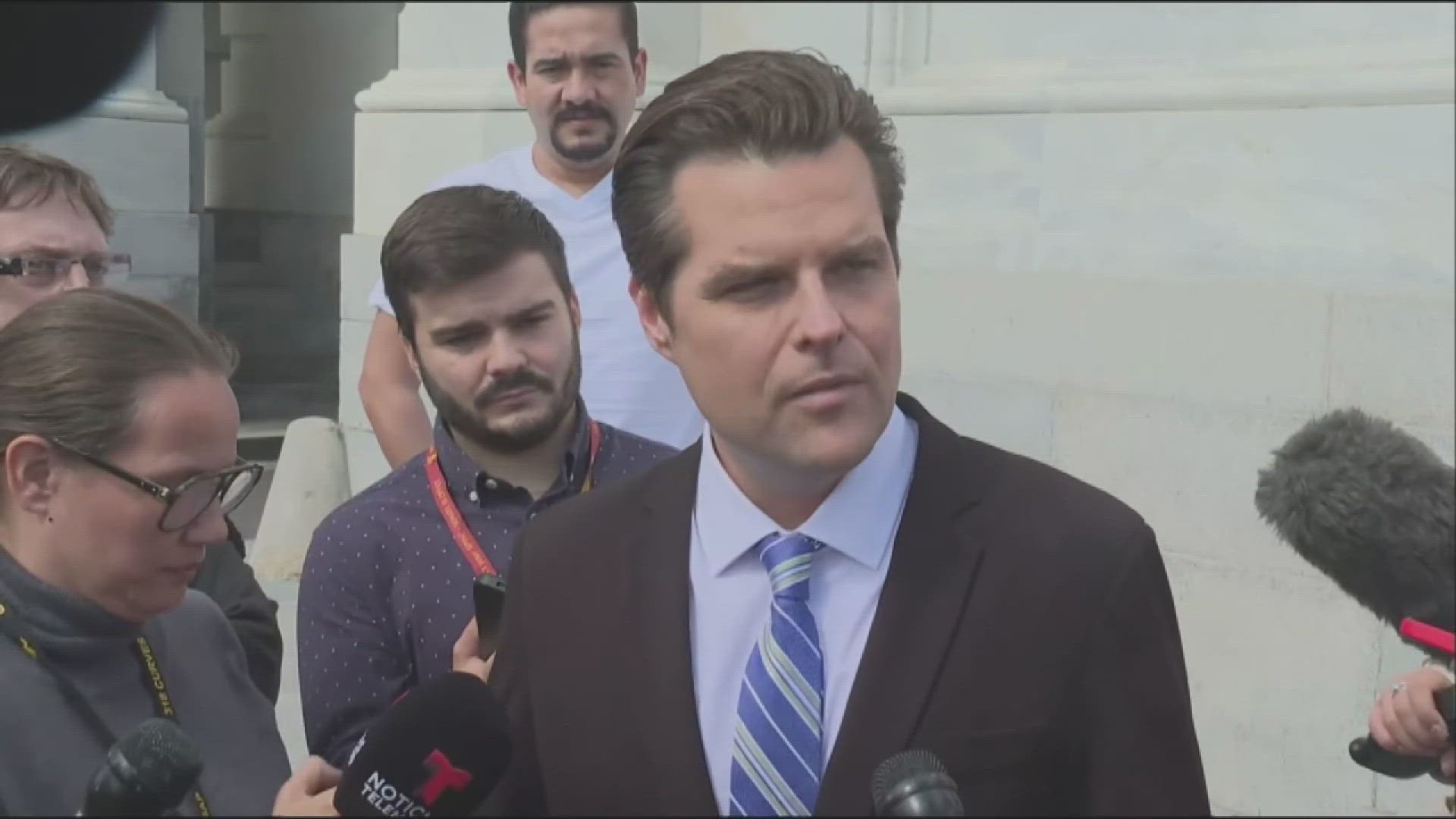Lt. Gov. Randy McNally said this week he would support legislation to eliminate the statute of limitations on felony child sex abuse crimes in Tennessee.
He also said he would back a temporary window for reviving expired civil claims related to child sex abuse cases.
Support on such measures from the high-ranking lawmaker bolsters efforts underway to give victims more time to come forward and hold their abusers accountable. It also could have financial implications if offenders and their organizations, like the Catholic Church, are found civilly liable for past actions.
"I think it’s something that we certainly need to bring forward as issues, not just because of the things that have happened within the church, but also things that happened elsewhere," McNally said in an interview with the USA TODAY NETWORK - Tennessee. "It's a societal problem."
McNally, R-Oak Ridge, has talked with his staff about preparing legislation for the 2019 session of the Tennessee General Assembly. If he moves forward with it, McNally would have to find sponsors since he does not introduce legislation as the lieutenant governor and speaker of the state Senate.
Although he said backing the proposal is in keeping with his track record of finding ways to crack down on crime, McNally did raise a concern about the potential that false claims could be brought forward.
"Child sexual abuse is a very, very serious crime," McNally said. "Of all the crimes one can commit, I think it ranks right toward the top along with murder, rape, torture, kidnapping, those capital crimes."
A small group of Catholic laypeople in Oak Ridge push for legislative changes
Changing the felony child sex abuse statutes is a focus for a group of about 30 Catholic laypeople at McNally's church in Oak Ridge.
The group, which is made up of parishioners but not officially connected to St. Mary's Catholic Church, invited McNally to attend a couple of its meetings to go over legislative options, said Bob Benning, a member of the group.
"We know every day there's articles in the paper identifying abuse of kids throughout our state and that abuse occurs in families, with friends, with relatives, in schools," Benning said.
McNally attended a couple of the meetings and he brought Karen Garrett, the director of the General Assembly's office of legal services, to one, Benning said.
"With any constituent group that comes to me, I try to provide the resources they need to make the judgments they need and also to assist them in helping that work move forward if it's beneficial to the state, and by the state I mean the people of Tennessee," McNally said. "That’s how you get things done is through grassroots efforts."
The group, according to Benning, hopes state lawmakers take up the following issues:
- Remove the statute of limitations for child sexual abuse felonies.
- Increase the time for civil claims involving child sexual abuse to 30 years after the victim turns 18 years old.
- Create a one-year window to revive expired civil claims.
- Create a Class E felony for intentional failure to report on a first offense and failure to report for a second offense.
Tennessee has taken steps over the past decade to address the statute of limitations on child sexual abuse crimes, according to a memo from the Tennessee Advisory Commission on Intergovernmental Relations on the issue. The state extended it to either 15 or 25 years after a victim turns 18.
In the most serious cases, the state eliminated the statute of limitations in 2014 but on the condition that a victim notify law enforcement or prosecutors within three years of the crime.
With the Pennsylvania report as a catalyst, Catholic group focuses on all child sex abuse
The group formed in the late summer after the damning Pennsylvania grand jury report that found widespread clergy sex abuse and church cover-up in six of that state's eight dioceses. While the group at St. Mary's is concerned with all child sex abuse in Tennessee, the recent wave of the Catholic crisis was a catalyst for its creation.
St. Mary's pastor had called a meeting at the end of August to discuss any concerns after the Pennsylvania report.
Some in attendance, like Benning, wanted to do more. Recognizing their limited influence on efforts within the Catholic Church, the concerned parishioners formed the group and decided to focus instead on what they could do to change state laws.
"We were all of a sudden very sensitive to the fact that, yeah, we've had kind of our heads in the sand on this as far as doing anything, but there might be a way through the statutes to help these children and youth," Benning said.
State commission is studying statute of limitations for felony child sex abuse
As they learned about existing state laws and legislative options, the group at St. Mary's found out that a state commission was already studying the statute of limitations on child sex abuse felonies at the request of the state legislature.
A draft report by the Tennessee Advisory Commission on Intergovernmental Relations discusses whether it should be eliminated. Thirty-nine states have eliminated some or all of the statutes of limitations for felony child sex abuse crimes, according to the draft study, which also mentions the Pennsylvania grand jury report.
The study was spurred, in part, by the testimony of Scott Walker, the president of WGNS Radio in Murfreesboro. He is a survivor of child sex abuse, but the man Walker says admitted to abusing him could not be prosecuted because Walker reported the crime to law enforcement after the statute of limitations had expired.
The USA TODAY NETWORK - Tennessee typically does not name victims of sexual abuse, but in Walker's case, he chose to speak publicly. In March, Walker testified before lawmakers in a House committee and subcommittee about his experience.
"It's something that a lot of people who are victims, they don't come forward with the information about it until they're 40, 50, 60 years old," said Walker, according to a video recording of his testimony.
The commission has to report its findings and recommendations, including any proposed legislation, by Jan. 15.
As for the group meeting at St. Mary's, its next step is to look for partners, Benning said. The goal is to build a coalition of organizations across the state to advocate for the passage of whatever related legislation is introduced.
"We can't do this alone," Benning said.


